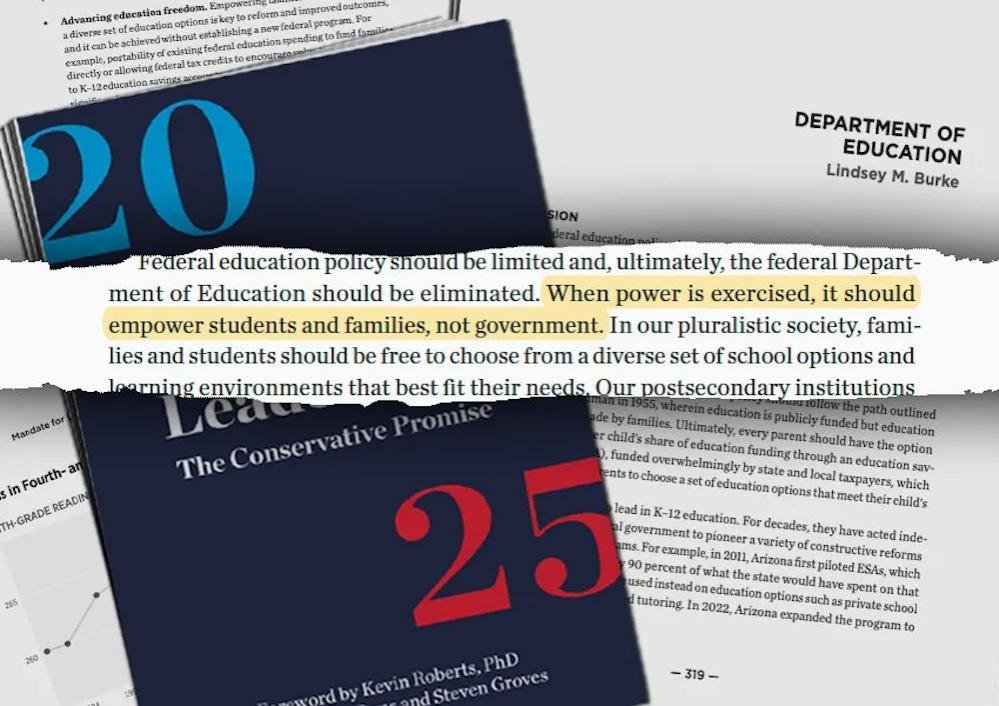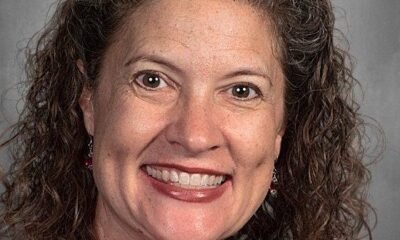arizona
Project 2025 Stirs Controversy: Arizona’s Education Blueprint Under Scrutiny

Project 2025, a controversial policy initiative for the next Republican presidency, aims to centralize power in the White House while overhauling nearly every aspect of federal government operations. The manifesto borrows from Arizona’s approach to public education reform.
The 900-page “Mandate for Leadership,” developed by the Heritage Foundation and other conservative figures, outlines an aggressive plan to dismantle the Department of Education. It suggests rethinking funding for low-income and disabled students and diverting public school dollars to less-regulated private schools and homeschooling alternatives.
Promoting universal school choice, the document insists that every parent should have the option to control their child’s education funding through an education savings account (ESA). This model, overwhelmingly funded by state and local taxpayers, mirrors Arizona’s school choice system, which offers universal voucher eligibility.
Heritage education policy expert Lindsey Burke acknowledges Arizona as a pioneer in school choice. Burke proposes shifting Individuals with Disabilities Education Act funds to families and promoting tax credits for contributions to nonprofits that provide private school scholarships, similar to Arizona’s school tuition organizations (STOs).
Conservatives use terms like “freedom” and “choice” to advocate for a new educational landscape. However, education policy experts suggest this setup could deliberately undermine public schools by stripping their funding. “The implications for students and public schools and the communities that rely on them are disastrous,” said Jessica Levin, litigation director at the Education Law Center.
Arizona’s school choice journey began in 1994 with the authorization of charter schools. By 1997, the state instituted nonprofit school tuition organizations, offering tax credits to donors. In 2006, the state created a school voucher program for students with disabilities and those in foster care, later deemed unconstitutional for funding religious schools.
Policymakers adapted, launching the Empowerment Scholarship Account program in 2011, initially for students with disabilities. Arizona now leads the nation in charter school enrollment and universal voucher programs, funneling substantial amounts of money into private school alternatives.
This growth has come at a cost. Arizona ranks near the bottom in public school funding. Public school spending has decreased even as enrollment has risen, while voucher and tax-credit programs have significantly increased. “Arizona has consistently refused to create quality public schools, forcing people to make other choices,” observed University of South Carolina Professor Derek Black.
Various conservative groups, including Betsy DeVos’ American Federation for Children and the Koch brothers’ Americans for Prosperity, have promoted these voucher expansions nationwide, often using Arizona as a testing ground. The Goldwater Institute aims to extend such programs nationally.
Proponents frame education as a consumer product, suggesting families should have the option to leave underperforming public schools for private alternatives. This perspective gained traction during the COVID-19 pandemic and amid cultural debates. While Republicans push for public funding of private education, voters often reject major voucher expansions.
Project 2025 envisions an educational marketplace where parents have the ultimate power to customize their child’s learning. However, private schools reserve the right to accept or reject students, limiting real choice for families and leaving some parents of disabled children unsupported.
Most ESA recipients have used vouchers to subsidize private school expenses previously covered themselves, placing additional financial strain on the state and school districts. Arizona’s existing laws offer little transparency about the performance of students using vouchers.
Experts warn that without accountability, universal vouchers could significantly increase national education spending. Project 2025’s proposals could deepen educational inequity, as wealthier families might easily leave failing public schools, while lower-income families struggle to afford private education even with vouchers.
The ultimate danger lies in undermining the role of public schools in fostering a united and informed citizenry. As Black notes, Project 2025’s vision challenges the foundational American commitment to public education, raising concerns about the nation’s future trajectory.
This article first appeared on Arizona Center for Investigative Reporting.


















